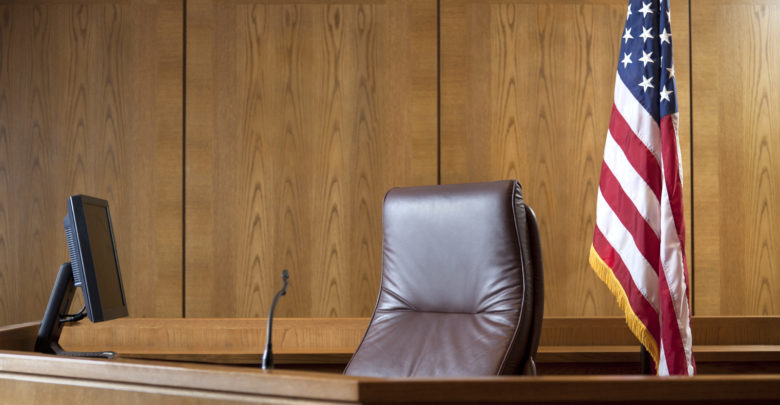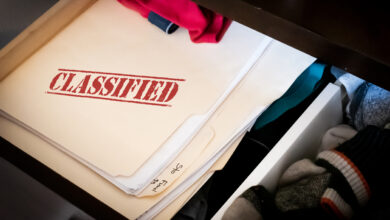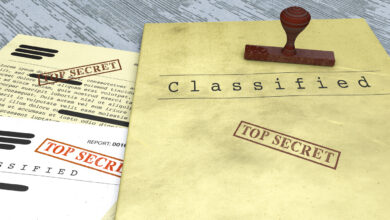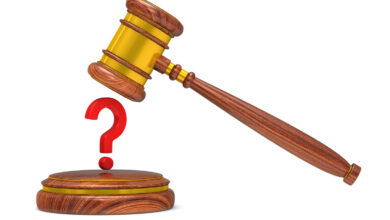Where’s Rudy?

If there is one piece of evidence that might bring around a handful of congressional Republicans to the pro-impeachment side it would be direct, first-hand testimony that Trump personally and unambiguously ordered that the release of military aid to Ukraine be conditioned upon a public announcement that Ukraine would investigate his 2020 political rival, Joe Biden.
So far, we’re very close to having this evidence, but not quite there.
Yes, everybody involved in the aid-for-dirt scheme clearly understood that they were carrying out Trump’s orders. And yes, it is unimaginable that everybody involved in this “drug deal”—from Mick Mulvaney to Gordon Sondland—was wrong about what Trump actually wanted. Or that Trump didn’t know exactly what was going on.
The evidence we have so far would be sufficient in any court of law, whether the standard was preponderance of the evidence, clear and convincing evidence, or beyond a reasonable doubt.
But impeachment is both a legal process and a political process, and for somebody looking to manufacture a defense, there’s a slight opening: None of the witnesses who testified before the House Intelligence Committee provided first-hand testimony that the order came directly from Trump.
***
Trump donor/diplomat Gordon Sondland came the closest.
He testified that Trump told him that he should “talk to Rudy,” and that he then worked with Giuliani “at the express direction of the president of the United States.” He and others “followed the president’s orders” in demanding a “quid pro quo”—an announcement of a Biden investigation—in exchange for a White House meeting. He presumed that release of Ukraine’s military aid was also conditioned on announcing the investigations.
But Sondland was unable to deliver 100 percent attribution to Trump. He didn’t put the demand for a quid pro quo directly in Trump’s mouth. Rather, his testimony indicated that Trump’s orders were couched in gangster-like deniability: Instead of telling Sondland specifically what to do, he told him to talk to the guy who was doing the dirty work on his behalf.
Congressional Republicans jumped all over Sondland’s “presumption” that Ukraine’s military aid—not just a White House meeting—was conditioned on an announcement of investigations. Burden of proof be damned, the GOP claimed that they needed more direct evidence.
This is what Trump’s defenders mean when they talk about the testimony against Trump being “second-hand hearsay.” Taken together with Trump’s scripted, stage-whispered, made-for-TV denial after he got caught—“I want nothing. I want no quid pro quo.”—it constitutes the heart of their defense against removing Trump from office.
It’s obvious that there’s one person who could easily supply the link that Republicans claim is missing: Rudy Giuliani.
Guiliani was Trump’s personal lawyer, acting on his behalf, communicating with him frequently, and managing the execution of the quid pro quo.
And yet, the Democratic pro-impeachment forces have been oddly hesitant to demand Giuliani’s testimony.
They never sent Giuliani a subpoena during the House Intelligence Committee hearings, and Senate Democratic Leader Chuck Schumer’s letter to Majority Leader Mitch McConnell doesn’t ask for Giuliani as a witness. Instead, it asks for testimony from four other witnesses: Mick Mulvaney, John Bolton, Michael Duffey, and Robert Blair.
All well and good. Some of those witnesses may have important first-hand information.
But where’s Rudy?
There’s arguably some legitimacy to approaching a demand for Giuliani’s testimony with some caution. Given that he was acting as Trump’s personal lawyer, some (but not all—more on this in a moment) of Giuliani’s conversations with Trump probably would be protected by attorney-client privilege.
But while the attorney-client privilege might shield lawyers from testifying about certain conversations with their clients, it doesn’t shield them from testifying, full-stop. Neither the attorney-client privilege nor anything else would shield Giuliani from testifying about his conversations with Gordon Sondland, John Bolton, Mick Mulvaney, or any other U.S. or Ukrainian government officials. Or any of the actions he took to implement the quid pro quo.
And it’s likely that even Giuliani’s conversations with his client, Trump, would not be fully protected either.
The attorney-client privilege doesn’t apply to every conversation between an attorney and a client. It applies only to conversations conducted in confidence (meaning outside the presence of others and with an expectation of confidentiality), and in furtherance of receiving or providing legal advice (meaning that routine conversations transmitting factual information from a non-privileged source are not privileged).
And there are well-established exceptions to the attorney-client privilege, including a crime or fraud exception. If a client seeks advice from an attorney to assist in a crime or a fraud, the conversation is not protected.
Moreover, the privilege can be waived. Meaning that if the client, in this case Donald Trump, has already spoken publicly about what he told his attorney, he loses his right to claim the privilege.
If called to testify, Giuliani might well ignore most of that and over-assert the privilege. He could get away with that in the short term, because even if the claims were insufficient to withstand a court challenge, the mere act of asserting them would keep him from answering questions at the time he gives his testimony. After that, it could take months for the courts to sort it out.
But it would be worth the effort. Although we live in a culture that increasingly demands immediate gratification, waiting a few months for the courts to compel Giuliani to testify wouldn’t be the end of the world. It might not come in time for a Senate trial on impeachment, but it could be of considerable value in other congressional investigations, in potential criminal proceedings, and—most importantly—in educating the public.
At a minimum, getting Giuliani to testify would force him to assert the privilege. That alone could be of value. He would be required to testify, on the record and under oath, that his actions in Ukraine were undertaken in the course of legal representation on Trump’s personal behalf—because otherwise, he would have no basis for claiming the privilege in the first place. That testimony, in and of itself, would tie Trump to Giuliani’s actions.
Imagine what it would suggest if one the House managers asked Giuliani, Did President Trump instruct you to inform Ukraine that U.S. aid wouldn’t be released unless and until it announced publicly that it was investigating the Bidens?
And then Giuliani replied, I refuse to answer on the grounds of the attorney-client privilege.
That would be . . . not good for Trump.
***
So long as the congressional Democrats don’t permit court challenges to slow down whatever they are doing, be it impeachment or oversight, there’s really no downside to demanding that Giuliani testify.
If he refuses to testify, so be it—the House managers would be no worse off than if they did not attempt to garner his testimony, and they could use his refusal to support the inference that his testimony would be harmful.
And if he overclaims privilege, he contributes to the narrative that he and Trump have something to hide. Settle for that for the time being, but continue the effort to compel answers through the courts. And if he lies, catch him if you can.
It’s hard to overstate how crucial Giuliani is to the entire Ukraine scandal.
Think about it: if Trump’s demands for investigations by Ukraine were in furtherance of U.S. government policy, why weren’t they carried out by the secretary of State, the attorney general, or some other government official? Why were they carried out by a lawyer hired by Trump to defend him personally?
Doesn’t the mere fact that Trump made his personal lawyer the point man in dealing with Ukraine disprove the notion that he was acting in the nation’s interest, not his own?
Giuliani’s testimony, no matter how narrowed by bogus privilege claims, would shed light on all of that.
But of course the best reason to call Giuliani is because the public needs to know the truth, and Giuliani clearly knows quite a lot about what went down in Ukraine. Congressional Democrats should insist—loudly and often—that Giuliani testify.
Their case demands it and the public deserves it.




